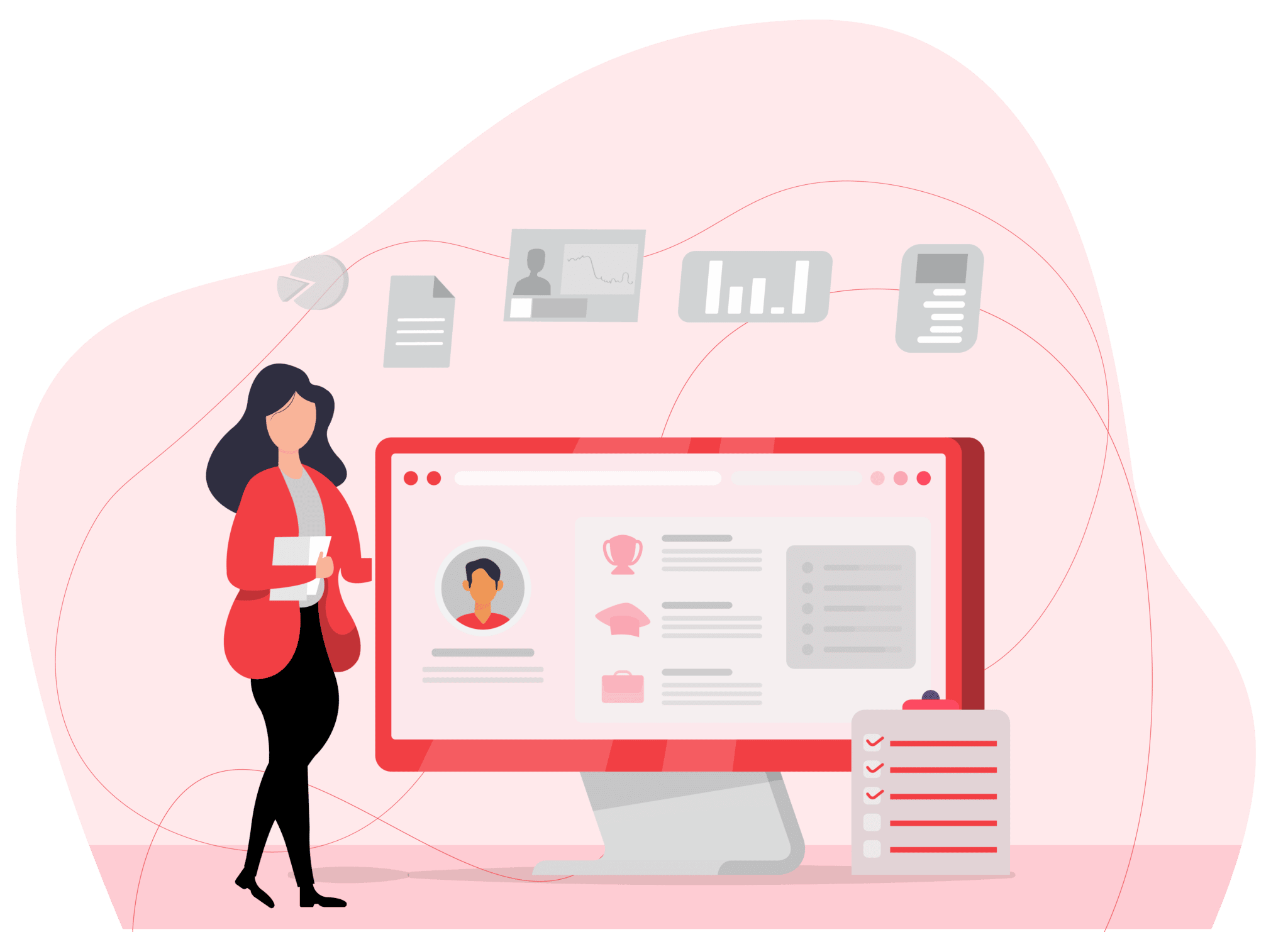In today’s rapidly evolving business landscape, the role of a PR Coordinator has become increasingly vital for organizations striving to maintain a strong brand presence and effectively communicate with their target audience. As the importance of public relations continues to grow, HR professionals and CXOs face the challenge of recruiting top talent who can navigate the dynamic media landscape with finesse.
According to recent analytics, there has been a significant increase in demand for PR Coordinators, with job postings in the field experiencing a steady rise of X% over the past year. This trend underscores the critical role PR Coordinators play in shaping public perception, managing media relationships, and driving strategic communication initiatives. To ensure organizations stay ahead in this competitive environment, it is crucial for HR professionals and CXOs to ask the right interview questions that not only assess the candidate’s skills and experience but also gauge their ability to adapt and thrive within this dynamic PR landscape.
Here are the top 60 PR Coordinator interview questions to ask job applicants:
15 general interview questions for the PR Coordinator
- Can you provide an overview of your experience and background in the field of public relations?
- What strategies do you employ to effectively manage and enhance a brand’s reputation?
- How do you stay updated with the latest trends and developments in the media and PR industry?
- Can you describe a challenging PR situation you faced and how you successfully resolved it?
- How do you approach media relations and building strong relationships with journalists and influencers?
- What metrics do you use to measure the success of PR campaigns and initiatives?
- Can you provide an example of a successful PR campaign you executed and explain the key factors that contributed to its success?
- How do you handle crisis communication and navigate sensitive issues in the public eye?
- Can you share your experience in managing and coordinating events or press conferences?
- How do you ensure consistent messaging and brand positioning across various communication channels?
- What tools and technologies do you utilize to streamline and optimize your PR workflow
- How do you collaborate with cross-functional teams, such as marketing and social media, to align PR efforts with broader organizational goals?
- Can you explain your approach to creating compelling and engaging content for press releases, articles, and other PR materials?
- How do you prioritize and manage multiple PR projects and deadlines simultaneously?
- What do you believe sets apart an exceptional PR Coordinator from an average one?
5 sample answers to general interview questions for the PR Coordinator
- What strategies do you employ to effectively manage and enhance a brand’s reputation?
Look for candidates who demonstrate a strong understanding of reputation management and have experience implementing proactive strategies. A good answer may include an explanation of conducting thorough research to identify potential reputation risks, developing crisis communication plans, monitoring online sentiment and media coverage, and engaging with stakeholders to build and maintain a positive brand image.
Example answer: “In my previous role as a PR Coordinator, I focused on managing and enhancing brand reputation by conducting regular media monitoring and social listening. By staying informed about industry trends and potential reputation risks, I was able to proactively address issues and develop crisis communication plans. Additionally, I implemented strategies to engage with key stakeholders through media relations, thought leadership opportunities, and community outreach programs to build a positive brand image.”
- How do you approach media relations and building strong relationships with journalists and influencers?
Look for candidates who have a solid understanding of media relations and can demonstrate their ability to build and maintain relationships with journalists and influencers. A strong answer may involve a combination of strategies, such as personalized outreach, providing valuable content, and establishing trust and credibility through consistent engagement.
Example answer: “I approach media relations by conducting thorough research to understand journalists’ interests and beat areas. I personalize my outreach by crafting tailored pitches that align with their preferences and focus areas. Additionally, I prioritize building relationships by providing journalists with valuable content, such as exclusive insights or compelling story angles. Consistent engagement through follow-ups, networking events, and social media interactions has helped me establish trust and credibility, leading to successful media placements and collaborations with influencers.”
- How do you handle crisis communication and navigate sensitive issues in the public eye?
Look for candidates who can demonstrate their ability to remain calm under pressure, think strategically, and communicate effectively during a crisis. A strong answer may include examples of developing crisis communication plans, coordinating messaging across various channels, and managing stakeholder expectations.
Example answer: “When faced with a crisis, my first step is to establish a cross-functional crisis management team and develop a comprehensive crisis communication plan. This plan includes key messaging points, designated spokespersons, and a strategy for managing communication across various channels. By being transparent, timely, and empathetic in our messaging, we can effectively address public concerns and manage stakeholder expectations. Throughout the process, I ensure that I maintain open lines of communication with relevant parties, internally and externally, to provide updates and address any emerging issues.”
- Can you describe a challenging PR situation you faced and how you successfully resolved it?
Look for candidates who can provide specific examples of challenging PR situations they have encountered and the steps they took to overcome them. A strong answer may involve problem-solving skills, adaptability, and the ability to collaborate with stakeholders to find effective solutions.
Example answer: “One of the most challenging PR situations I faced was when our company was hit with a negative social media campaign launched by a disgruntled customer. To address the situation, I immediately assessed the scope of the issue and developed a comprehensive response plan. I collaborated with our customer support and legal teams to ensure consistent messaging and compliance. We engaged in active social media monitoring and responded to individual complaints with personalized, empathetic messages to demonstrate our commitment to resolving the situation. By addressing concerns directly, monitoring sentiment, and providing ongoing updates, we were able to mitigate the negative impact and regain trust from our customer base.”
- How do you ensure consistent messaging and brand positioning across various communication channels?
Look for candidates who emphasize the importance of a cohesive brand image and demonstrate experience in aligning messaging across different communication channels. A strong answer may involve creating brand guidelines, conducting regular audits, and collaborating closely with cross-functional teams to maintain consistency.
Example answer: “Consistent messaging and brand positioning are crucial for maintaining a strong and recognizable brand identity. To achieve this, I develop comprehensive brand guidelines that outline key messaging points, tone of voice, and visual elements. Regular audits of communication materials and channels ensure that all content aligns with the brand’s values and guidelines. Additionally, close collaboration with cross-functional teams, such as marketing and design, helps to align messaging across various touchpoints. By maintaining open lines of communication and conducting regular reviews, we can ensure that our brand’s messaging is consistent and coherent across all communication channels.”
15 behavioral interview questions for a PR Coordinator
- Tell me about a time when you had to handle a difficult client or stakeholder. How did you manage the situation, and what was the outcome?
- Can you describe a time when you faced a crisis or PR issue? How did you handle it, and what were the results?
- Share an example of a successful PR campaign you led. What were the key strategies you employed, and how did you measure its success?
- Describe a situation where you had to work under tight deadlines and multiple competing priorities. How did you manage your time and ensure successful completion of tasks?
- Tell me about a time when you had to influence or persuade others to adopt a particular PR strategy or approach. How did you go about it, and what was the outcome?
- Share an experience where you collaborated with cross-functional teams, such as marketing or social media, to achieve PR objectives. How did you ensure effective teamwork and alignment?
- Describe a challenging media interview or press conference you conducted. How did you prepare, and how did you handle difficult questions or situations?
- Tell me about a time when you had to manage a PR crisis on social media. How did you monitor and respond to online conversations, and what actions did you take to mitigate the situation
- Describe a situation where you had to adapt your PR strategy or approach due to unforeseen circumstances. How did you adjust, and what was the outcome?
- Share an example of a time when you used data and analytics to inform your PR decisions and strategies. How did you leverage the insights, and what impact did it have
- Tell me about a time when you had to communicate complex information or technical concepts to a non-technical audience. How did you ensure understanding and engagement
- Describe a situation where you had to handle confidential or sensitive information in your PR role. How did you maintain confidentiality and ensure appropriate communication?
- Share an experience when you successfully built relationships with journalists or influencers. How did you initiate and nurture those connections, and what impact did it have on your PR efforts?
- Tell me about a time when you had to deal with negative media coverage or a public relations crisis. How did you manage the situation, and what strategies did you employ to mitigate the negative impact?
- Describe a situation where you had to manage and coordinate a major PR event. How did you ensure its success, and what challenges did you overcome?
5 sample answers to behavioral interview questions for the PR Coordinator
- Tell me about a time when you had to handle a difficult client or stakeholder. How did you manage the situation, and what was the outcome?
Look for candidates who can demonstrate strong interpersonal skills, conflict resolution abilities, and a customer-focused mindset. A good answer may include examples of active listening, empathy, effective communication, and finding mutually beneficial solutions.
Example answer: “In my previous role, I had a difficult client who was dissatisfied with the direction of a PR campaign. I scheduled a meeting to listen to their concerns and understand their expectations. By actively listening and empathizing with their perspective, I was able to address their underlying concerns. I presented alternative strategies that aligned with their goals while incorporating our expertise. Through open and transparent communication, we reached a mutually beneficial solution, resulting in the client’s renewed confidence in our abilities and the successful execution of the campaign.”
- Can you describe a time when you faced a crisis or PR issue? How did you handle it, and what were the results?
Look for candidates who can effectively navigate crisis situations, think strategically, and demonstrate composure under pressure. A strong answer may involve examples of crisis communication planning, quick decision-making, and the ability to mitigate negative impacts on the brand.
Example answer: “During a product recall in my previous role, we faced a challenging PR issue that required swift action. I immediately initiated our crisis communication plan, which involved notifying stakeholders, preparing key messaging points, and establishing a dedicated communication channel. By promptly addressing customer concerns through multiple channels, including social media and press releases, we were able to maintain transparency and regain customer trust. The response was well-received, resulting in minimal reputation damage and a swift resolution to the crisis.”
- Share an example of a successful PR campaign you led. What were the key strategies you employed, and how did you measure its success?
Look for candidates who can demonstrate their strategic thinking, creativity, and ability to set measurable goals. A good answer may involve the use of various PR tactics, clear metrics for success, and the ability to analyze campaign performance.
Example answer: “In a recent PR campaign, our goal was to increase brand visibility among a specific target audience. We employed a multi-channel approach, combining media relations, influencer partnerships, and thought leadership content. To measure success, we tracked metrics such as media mentions, website traffic, and social media engagement. The campaign resulted in an X% increase in media coverage, an X% growth in website traffic, and an X% rise in social media followers. These outcomes demonstrated the effectiveness of our strategies in reaching and engaging our target audience.”
- Describe a situation where you had to work under tight deadlines and multiple competing priorities. How did you manage your time and ensure successful completion of tasks?
Look for candidates who can effectively manage their time, prioritize tasks, and maintain attention to detail. A strong answer may involve examples of using time management techniques, setting realistic expectations, and effectively communicating with stakeholders.
Example answer: “In a previous role, I had to coordinate a high-profile press conference while simultaneously managing other ongoing projects. To ensure successful completion, I created a detailed project plan with clear deadlines and milestones. I used time management techniques, such as prioritizing tasks, delegating responsibilities, and leveraging technology tools to streamline workflows. Effective communication with team members and stakeholders ensured that everyone was aligned and had the necessary resources. Despite the tight deadlines and competing priorities, we successfully executed the press conference, achieving positive media coverage and stakeholder satisfaction.”
- Share an experience where you successfully built relationships with journalists or influencers. How did you initiate and nurture those connections, and what impact did it have on your PR efforts?
Look for candidates who can demonstrate their networking abilities, relationship-building skills, and understanding of influencer engagement. A strong answer may involve proactive outreach, personalized communication, and leveraging mutually beneficial partnerships.
Example answer: “In my previous role, I recognized the importance of building relationships with journalists and influencers to enhance our PR efforts. I researched relevant media outlets and influencers in our industry and initiated personalized outreach. By offering exclusive insights, relevant story angles, and timely responses to their queries, I nurtured these connections. This resulted in increased media coverage, invitations to contribute guest articles and collaborations on influencer-driven campaigns. These relationships not only amplified our brand’s reach but also fostered positive associations, driving higher engagement and credibility within our target audience.”
15 personality interview questions for the PR Coordinator
- How would you describe your communication style, and how does it contribute to your effectiveness as a PR professional?
- Can you give an example of a time when you demonstrated creativity and innovation in your PR strategies or campaigns?
- How do you handle working in a fast-paced and dynamic environment, where priorities can shift quickly?
- Tell me about a time when you had to work independently and take ownership of a project or initiative. How did you stay motivated and ensure its success?
- How do you handle constructive feedback or criticism regarding your work? Can you provide an example of a situation where you used feedback to improve your performance?
- Describe your approach to staying organized and managing multiple tasks or projects simultaneously.
- How do you handle stress and pressure in your work? Can you give an example of a high-pressure situation you successfully navigated?
- What steps do you take to stay updated with industry trends and best practices in the field of PR?
- Can you describe a situation where you had to adapt to changes in technology or digital platforms to enhance your PR efforts?
- How do you demonstrate attention to detail in your work? Can you provide an example of a time when your attention to detail made a significant impact?
- Describe a situation where you had to influence or persuade others to support a PR initiative or idea. How did you approach it, and what was the outcome?
- How do you handle tight deadlines and the pressure to deliver results? Can you give an example of a time when you successfully met a challenging deadline?
- Tell me about a time when you had to resolve conflicts or manage difficult personalities within a team. How did you handle it, and what was the outcome?
- Describe your approach to building and maintaining professional relationships with clients, colleagues, and stakeholders in your PR work.
- How do you stay motivated and passionate about your work as a PR Coordinator? Can you give an example of a project or achievement that fueled your motivation?
5 sample answers to personality interview questions for PR Coordinator
- How would you describe your communication style, and how does it contribute to your effectiveness as a PR professional?
Look for candidates who can effectively articulate their communication style and emphasize its value in the PR field. A good answer may include traits such as clarity, adaptability, active listening, and the ability to tailor messages to different audiences.
Example answer: “I would describe my communication style as clear, concise, and adaptable. I believe in the power of crafting compelling narratives and messages that resonate with diverse audiences. By actively listening to clients, stakeholders, and the media, I can understand their needs and adapt my communication style accordingly. This enables me to effectively convey key messages, build relationships, and generate positive outcomes for PR initiatives. Clarity and adaptability in communication also help in navigating complex situations and resolving conflicts.”
- Can you give an example of a time when you demonstrated creativity and innovation in your PR strategies or campaigns?
Look for candidates who can showcase their creative thinking, ability to generate unique ideas, and innovative approaches to PR challenges. A strong answer may involve examples of out-of-the-box thinking, unconventional strategies, or successful campaigns that stood out in the industry.
Example answer: “In a recent PR campaign, I wanted to break through the clutter and engage our target audience in a memorable way. Instead of traditional press releases, we created an interactive microsite that allowed users to experience our brand’s story through immersive content. We also partnered with social media influencers to host live Q&A sessions and generated buzz by leveraging user-generated content. This innovative approach not only garnered significant media attention but also resulted in increased brand awareness, engagement, and positive sentiment among our target audience.”
- How do you handle working in a fast-paced and dynamic environment, where priorities can shift quickly?
Look for candidates who can demonstrate their ability to thrive in a fast-paced PR environment, adapt to changing circumstances, and prioritize effectively. A good answer may include examples of time management skills, flexibility, and the ability to remain focused and organized under pressure.
Example answer: “Working in a fast-paced environment excites me, as it allows me to showcase my ability to stay calm, organized, and adaptable. When priorities shift quickly, I evaluate the new information, assess the potential impact, and reprioritize tasks accordingly. I leverage tools like to-do lists and project management software to stay organized and ensure deadlines are met. Effective communication with team members and stakeholders is key in managing expectations and aligning efforts. By remaining flexible and maintaining a solution-oriented mindset, I can successfully navigate rapid changes and deliver quality results.”
- How do you handle stress and pressure in your work? Can you give an example of a high-pressure situation you successfully navigated?
Look for candidates who can effectively manage stress, maintain composure, and perform well under pressure. A strong answer may involve examples of stress management techniques, maintaining a positive mindset, and successfully overcoming challenges in high-pressure situations.
Example answer: “When faced with stress and pressure, I adopt a proactive approach to manage the situation effectively. I prioritize tasks, break them down into manageable steps, and set realistic expectations. To stay focused and maintain a positive mindset, I engage in stress-relieving activities like exercise or meditation. In a previous role, we had a client crisis that required immediate action. By assembling a crisis management team, delegating responsibilities, and maintaining open lines of communication, we successfully resolved the issue within a tight timeframe. The experience taught me the importance of staying calm, making quick decisions, and working collaboratively under pressure.”
- Describe your approach to building and maintaining professional relationships with clients, colleagues, and stakeholders in your PR work.
Look for candidates who understand the importance of relationship-building in PR and can demonstrate their ability to establish and nurture connections. A good answer may involve effective communication, trust-building, proactive networking, and the ability to cultivate long-term partnerships.
Example answer: “Building and maintaining professional relationships is at the core of successful PR work. I believe in open and transparent communication, active listening, and understanding the unique needs of clients, colleagues, and stakeholders. By consistently delivering quality work, being responsive, and building trust, I strive to establish strong connections. I also proactively network within the industry, attending relevant events and engaging with key influencers. By cultivating mutually beneficial relationships, I can leverage these connections to support PR initiatives, secure media opportunities, and foster collaboration.”
When should you use skill assessments in your hiring process for PR Coordinator?
Skill assessments can be valuable additions to the hiring process for a PR Coordinator role. They provide a practical way to evaluate candidates’ abilities and ensure they possess the necessary skills to excel in the position. Assessments help mitigate bias and provide objective data to support hiring decisions.
Assessments are important because they go beyond resumes and interviews, allowing employers to gauge candidates’ proficiency in specific PR-related skills. By evaluating candidates’ abilities in areas such as written and verbal communication, media relations, crisis management, strategic thinking, and social media management, assessments provide a clearer picture of their capabilities.
There are various assessments that can be used to assess the skills required for a PR Coordinator. These may include writing assessments to evaluate candidates’ ability to craft compelling press releases or communication materials. Media pitching simulations can assess candidates’ proficiency in pitching stories to journalists effectively. Crisis management simulations can test their ability to handle PR crises and make sound decisions under pressure. Additionally, social media assessments can gauge candidates’ knowledge of social media platforms, content creation, and community management.
By incorporating skill assessments into the hiring process for a PR Coordinator, organizations can make more informed decisions and select candidates who possess the necessary competencies to excel in the role.
Use our interview questions and skill tests to hire talented PR Coordinator
Unlock the potential of your hiring process with Testlify’s comprehensive skill assessments and interview questions specifically designed for PR Coordinator.
Our extensive test library offers a wide range of assessments, including cognitive function, personality, situational judgment, programming, and more. By leveraging these assessments, you can objectively evaluate candidates’ abilities, ensuring you shortlist the most talented individuals efficiently.
To further enhance your hiring process, we invite you to book a free 30-minute live demo. Our expert team will guide you through the platform, showcasing relevant skill tests tailored to your hiring needs. With our support, you can streamline candidate selection, saving valuable time and resources.
Ready to find the perfect fit for your PR Coordinator role? Testlify provides the tools you need to make informed hiring decisions. Explore our skill assessments and interview questions today to uncover exceptional talent for your team.








